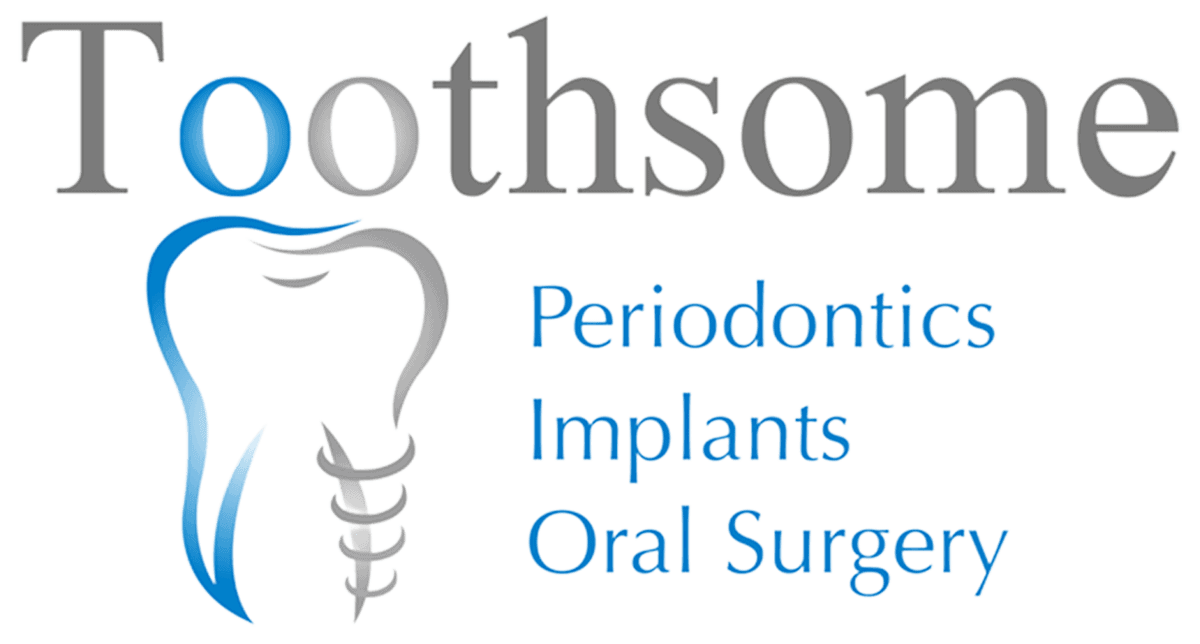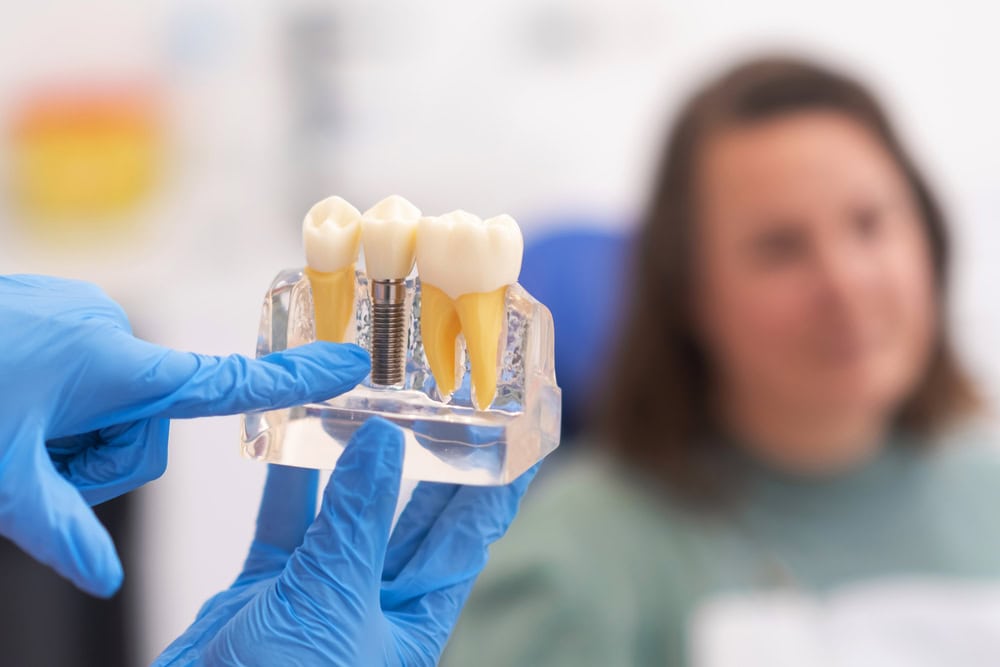Dental implants are artificial tooth roots typically made of biocompatible titanium alloy. They are placed meticulously into the jawbone. One key factor contributing to their success is osseointegration, a natural process in which the implant fuses with the surrounding bone, providing a stable foundation for the replacement tooth.
From a prosthodontics perspective, dental implants play a crucial role in restoring the aesthetics and functionality of a patient’s smile. Unlike traditional dentures or bridges, dental implants offer a more natural look and feel, mimicking the structure and stability of natural teeth. This aspect is vital in maintaining oral health as it helps prevent issues such as bone loss and shifting of adjacent teeth.
Overall, dental implants’ importance in modern dentistry cannot be overstated. They provide a long-term solution for tooth loss while promoting optimal oral health.
What are Dental Implants
The foundation of dental implants lies in their intricate design and functionality, which involves a sophisticated interplay of components such as the implant, abutment, and crown, all meticulously crafted to replicate the natural structure of a tooth.
Dental implants are artificial tooth roots typically made of titanium, which is known for its biocompatibility and durability. There are different types of dental implants, including endosteal implants that are placed directly into the jawbone, subperiosteal implants that sit on top of the jawbone under the gum line, and zirconia implants, which are known for their natural tooth-like appearance.
These implants serve as a sturdy base for attaching the abutment, which connects the implant to the crown – the visible part of the tooth replacement. Dental implant technology has advanced significantly, allowing for precise placement and improved success rates.
Understanding how dental implants work is crucial for individuals considering this long-term solution for missing teeth.
Benefits of Dental Implants
Enhancing both function and aesthetics, dental implants offer a comprehensive solution for individuals seeking lasting benefits in tooth restoration. One of the key advantages of dental implants is their ability to promote jawbone integrity. Unlike other dental restoration options, implants help prevent bone loss and stimulate new bone growth through osseointegration. This not only ensures the stability of surrounding teeth but also maintains the face’s natural shape by preserving the jawbone’s structure.
Furthermore, dental implants provide superior tooth stability compared to alternatives like dentures or bridges. They are securely anchored in the jaw, allowing for confident eating and speaking without worrying about them shifting or falling out. Additionally, implants offer a natural look and feel, seamlessly blending with the rest of your teeth to create a harmonious smile. This aesthetic appeal contributes to why many individuals choose dental implants over other dental restoration options, as they provide a long-term solution that prioritises both function and beauty.
What are Implants?
Using titanium screws as the foundation, dental implants serve as permanent fixtures for replacing missing teeth and restoring oral function and aesthetics. These prosthetic devices are surgically positioned into the jawbone, where they undergo osseointegration, a process where the implant fuses with the bone, providing a sturdy base for the replacement tooth.
An abutment is then attached to the implant, which securely connects the prosthetic tooth to the implant. Dental implants, also known as tooth implants, are designed to be long-lasting solutions that mimic the look and function of natural teeth. Integrating seamlessly with the jawbone offers stability and durability, promoting oral health and overall well-being.
The use of titanium screws in dental implants ensures biocompatibility and strength, making them a reliable option for individuals seeking permanent implants to enhance their smile and oral functionality.
Are You a Candidate for Dental Implants?
Considering the importance of maintaining optimal oral health and function, one must assess one’s suitability for dental implants based on specific criteria related to oral health, gum health, and bone density.
Potential patients must have good oral health and be free from untreated cavities or gum disease before being considered for dental implants. Healthy gum tissue is crucial for the success of implants, making regular dental check-ups essential.
Adequate bone density in the jaw is also a prerequisite for the implant’s stability. Factors such as periodontal disease, smoking, and diabetes can affect the healing process post-implant placement and may impact the candidacy for dental implants.
Individuals interested in dental implants should discuss their medical history, including any chronic conditions or habits like smoking, with their dentist to determine if they meet the requirements for dental implants. Dentists can determine who can get dental implants safely and effectively by thoroughly evaluating these aspects.
Dental Implant Procedure
During the initial consultation for a dental implant procedure, the dentist will carefully evaluate the patient’s oral health and discuss the necessary steps involved in the surgical process. Sedation dentistry may be offered to ensure the patient’s comfort during the procedure.
Implant placement is a crucial stage in which the titanium post is surgically inserted into the jawbone. Following this, the healing process begins, allowing for the osseointegration period, during which the implant fuses with the bone.
This marks the early stages of the dental implant process, culminating in the final placement of the prosthetic tooth. Understanding the stages of the dental implant procedure can provide patients with confidence and knowledge about what to expect throughout the treatment journey.
Key Takeaways
The journey towards optimal dental health begins with informed decision-making guided by personalised advice from experienced professionals. By seeking a dental consultation, individuals can gain valuable insights into their oral health needs and explore tailored treatment options, such as dental implants. Empower yourself with knowledge and take the first step towards achieving a healthy and confident smile.
Schedule your consultation today at Toothsome Implants in Baulkham Hills, NSW 2153, and start the path towards a brighter dental future.



